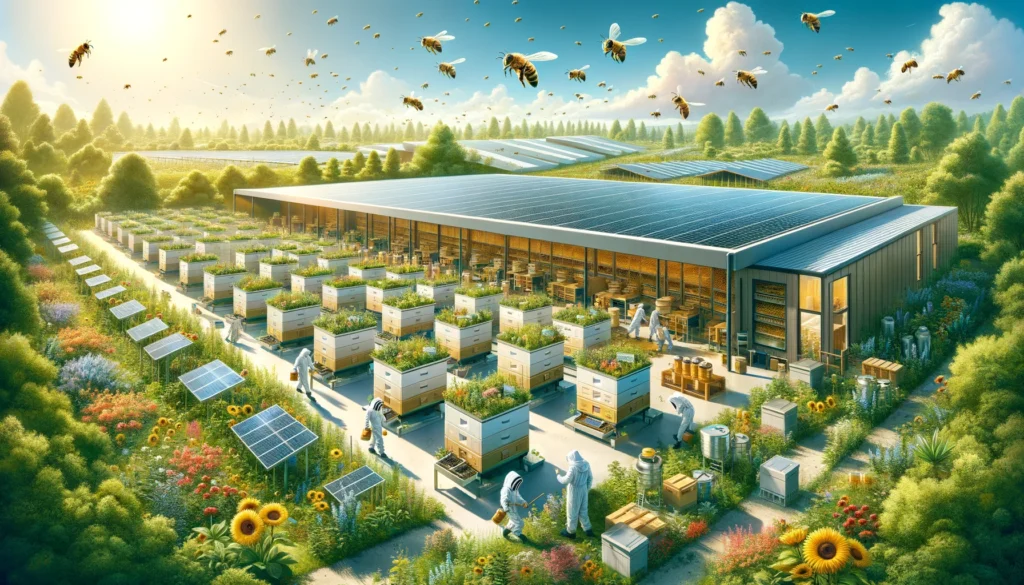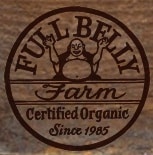
Honey Production A detailed wide aspect illustration of a modern honey production facility. The scene shows a vibrant apiary with multiple beehives in a lush green se 2.webp.webp
Honey Production: From Hive to Jar
Definition:
Honey production is the process of harvesting and processing honey, a natural sweet substance produced by honey bees from the nectar of flowers. It involves various steps, including hive management, nectar collection, honey extraction, filtering, and packaging, to produce high-quality honey for consumption and commercial sale.
Informative Details:
Honey production is a time-honored practice that dates back thousands of years, with honey serving as a valuable food source, sweetener, and medicinal ingredient. Honey bees, through their remarkable foraging abilities, collect nectar from flowering plants, transform it into honey through enzymatic processes, and store it in wax honeycombs within the hive. Beekeepers play a crucial role in managing honey bee colonies, providing them with suitable habitats, nutrition, and care to ensure optimal honey production.
Fall off the barn roof and busted your keister? Life on the farm or ranch can be tough on the bum. Need a break? Laugh it off at FarmerCowboy.com, the #1 farm humor site. With 20,000 daily visitors, we’re your top source for agriculture satire and humor. Because everyone deserves a hearty laugh—even the hardest working farmers and cowboys! Join us and turn those long days into fun tales at FarmerCowboy.com.
Valuable Assistance:
Honey production offers numerous benefits for beekeepers, consumers, and the environment, including a sustainable source of sweetener, antimicrobial properties, and economic opportunities. Honey is prized for its unique flavor, aroma, and nutritional composition, containing sugars, enzymes, antioxidants, vitamins, and minerals that contribute to its health-promoting properties. By supporting beekeeping and honey production, consumers can contribute to pollinator conservation, biodiversity, and food security.
Beneficial Guidance:
Beekeepers can benefit from a variety of resources, technologies, and support services available to enhance their honey production practices and optimize hive productivity and health. From beekeeping associations and extension programs to equipment suppliers and educational materials, there are numerous opportunities for beekeepers to access information, training, and expertise to succeed in honey production.
Actionable Suggestions:
- Hive Management: Monitor honey bee colonies regularly to assess hive health, population dynamics, and honey stores. Provide bees with adequate space, ventilation, and protection from pests and diseases. Manage hive components, such as frames and supers, to facilitate honey production and harvesting.
- Nectar Collection: Position hives in areas with abundant floral resources and nectar-producing plants. Monitor flowering patterns and nectar flows to maximize honey production opportunities. Ensure bees have access to diverse and pesticide-free forage sources to produce high-quality honey.
- Honey Extraction: Harvest honey when honeycomb cells are capped and filled with mature honey. Use appropriate tools and equipment, such as honey extractors and uncapping knives, to remove honey from frames without damaging comb or bees. Extract honey gently to minimize stress and disturbance to bees.
- Filtering and Processing: Filter raw honey to remove impurities such as wax, pollen, and bee debris. Use gravity or mechanical filtration methods to clarify honey while preserving its natural flavor and nutritional properties. Avoid excessive heating or processing that may degrade honey quality.
- Packaging and Labeling: Package honey in clean, food-grade containers that protect it from light, moisture, and contamination. Label honey jars with product information, including variety, origin, and harvest date. Comply with local regulations and labeling requirements for honey packaging and sales.
Helpful Content for Beekeepers:
Honey production is a rewarding and fulfilling endeavor for beekeepers passionate about sustainable agriculture, pollinator conservation, and local food systems. By adopting best management practices, fostering bee health and welfare, and engaging with consumers and communities, beekeepers can produce high-quality honey that contributes to the well-being of people, bees, and the planet.
References:

Originally posted 2023-12-06 19:49:24.
Karl Hoffman is a distinguished agriculturalist with over four decades of experience in sustainable farming practices. He holds a Ph.D. in Agronomy from Cornell University and has made significant contributions as a professor at Iowa State University. Hoffman’s groundbreaking research on integrated pest management and soil health has revolutionized modern agriculture. As a respected farm journalist, his column “Field Notes with Karl Hoffman” and his blog “The Modern Farmer” provide insightful, practical advice to a global audience. Hoffman’s work with the USDA and the United Nations FAO has enhanced food security worldwide. His awards include the USDA’s Distinguished Service Award and the World Food Prize, reflecting his profound impact on agriculture and sustainability.



